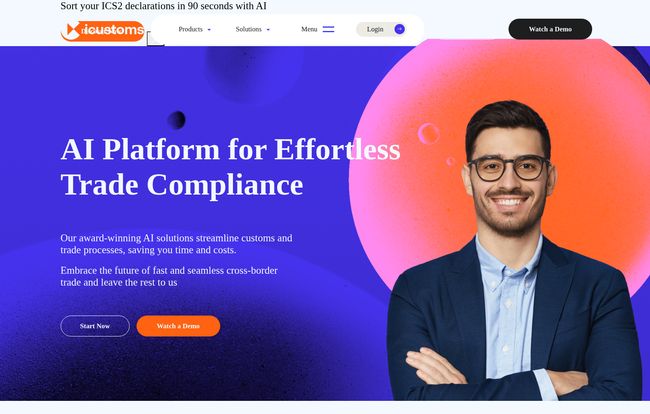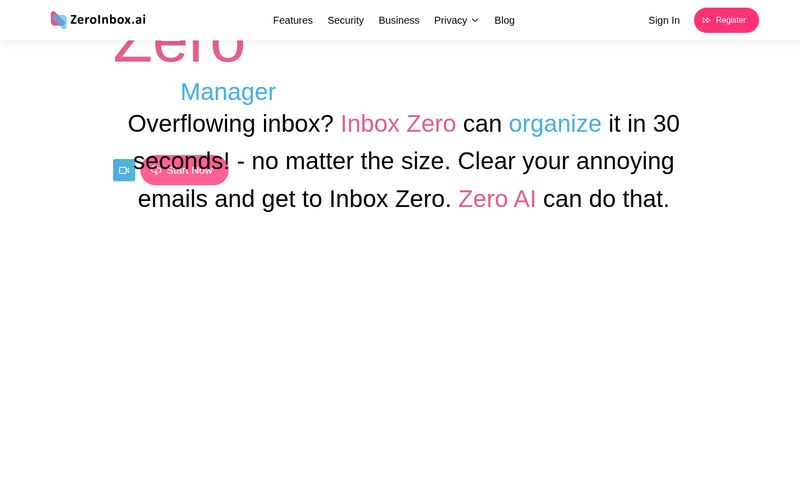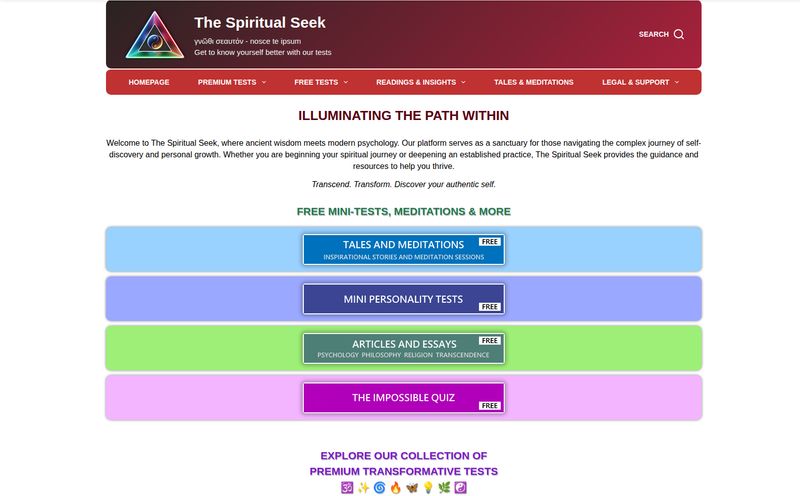I’ve been in the digital marketing and traffic game for years, and I’ve seen trends come and go. But every now and then, a piece of tech pops up that makes you sit up and pay attention. Especially when it tackles a problem so universally… awful. Let’s talk about customs declarations.
Yeah, I see you shuddering. We’ve all been there, or at least worked with clients who have. The endless stacks of paperwork, the confusing tariff codes, the cold sweat that comes with knowing a single typo could leave a container of valuable goods sitting on a dock for weeks, racking up fees. It's a special kind of nightmare that feels archaic in our hyper-efficient world. It’s like trying to send an email using a carrier pigeon.
So when a platform like iCustoms comes along, waving the flag of AI and automation, my curiosity is definitely piqued. They promise less time, less cost, and more accuracy. The holy trinity for anyone in logistics. But is it just shiny marketing, or is there some real substance under the hood? Let's take a look.
What on Earth is iCustoms Anyway?
At its heart, iCustoms is an AI-powered trade compliance platform. That’s the official line. In human terms? Think of it as a super-smart assistant and a universal translator for the ridiculously complex language of international trade. Its entire purpose is to take the manual, error-prone, and soul-crushing parts of customs declarations and automate them with artificial intelligence.
The platform claims it can help you sort out complex declarations, like the ICS2, in as little as 90 seconds. A bold claim. For anyone who has ever manually prepared one of these, that sounds less like a feature and more like actual magic.
The Core Features That Actually Matter
A platform is only as good as its tools. So what’s in the iCustoms toolbox? I poked around their site and documentation, and a few things really stood out to me as being genuinely useful, not just fluff.
Taming the Paperwork Dragon with iDP
First up is something they call iDP, or Intelligent Document Processing. This is the real front-line soldier in the war against manual data entry. Instead of having a person stare at a commercial invoice, a packing list, and a bill of lading, then manually type all that info into another system, iDP does the heavy lifting. The AI scans the documents, identifies the relevant data—shipper, consignee, value, weight, etc.—and pulls it automatically. The potential for reducing simple human error here is massive. No more mistyping a '3' as an '8' and throwing the whole declaration into chaos.
The Magic of AI Product Classification (iClassification & iTariff)
If you know, you know. Finding the correct Harmonized System (HS) code for a product can be one of the most frustrating parts of the job. Is a particular type of plastic chair classified under 'furniture' or 'plastics'? The wrong choice can lead to paying the wrong duty, facing audits, and potentially hefty fines. The iClassification tool uses AI to analyze product descriptions and suggest the most likely HS codes. Paired with iTariff, which helps calculate the duties and taxes based on that code, this duo could be a huge risk-reduction tool. It's about moving from guesswork to data-backed confidence.
Calculating the True Cost of Goods (iCalculator)
One of the biggest mistakes I see new importers make is failing to understand landed cost. The price you pay the factory is just the beginning. You have to account for shipping, insurance, duties, taxes, and fees to know what a product actually costs you by the time it's in your warehouse. The iCalculator is designed to do just that, giving businesses a much clearer picture of their real profit margins. No more nasty surprises on the customs bill.

Visit iCustoms
Specialized Tools for a Complex World
Beyond the big three, iCustoms offers a suite of more specialized modules. Things like iNCTS for managing electronic transit documents, iENS for Entry Summary Declarations, and even region-specific solutions like iAIS/iAES for trade with Ireland. This tells me they're not just a one-trick pony; they’re building a comprehensive ecosystem for trade compliance. They even have screening tools for denied parties and restricted goods, adding another layer of compliance protection.
The Good, The Bad, and The AI-Driven
Alright, no tool is perfect. Let’s get down to the brass tacks. What are the real-world upsides and where might you hit a snag?
On the plus side, the time and cost savings are obvious. Automating data entry and classification frees up your team to focus on more strategic work, rather than just being data monkeys. Fewer errors mean fewer fines and delays, which directly protects your bottom line. And having a system that is constantly updated with the latest regulations provides a level of compliance confidence that’s hard to achieve manually. That peace of mind is worth a lot.
However, let's be realistic. There's always a catch, right? First, this isn't a magic wand you just wave. There will be an initial setup and integration period to get it synced with your existing systems. That takes time and resources. Second, you’re placing a lot of trust in an AI. While it's incredibly powerful, it’s not infallible. You absolutely still need a knowledgeable human to oversee the process, review the AI’s suggestions, and make the final call. This is a tool to empower experts, not replace them entirely.
And then there's the cost. As for pricing... well, here’s a fun little anecdote. I went to their website to find a pricing page and give you the full scoop. And... womp womp. I was met with a friendly "Oops! That page can’t be found." 404 error. Look, it happens to the best of us, but it does mean I can't give you hard numbers. Subscription costs for this kind of powerful software can be a barrier, especially for smaller businesses or those with infrequent shipping needs. It’s a bit of a black box without a public pricing tier.
Who is iCustoms Really For?
So, who should be seriously looking at a tool like this? Based on its feature set, iCustoms seems tailor-made for businesses with a significant volume of international shipments. Think freight forwarders, customs brokers, medium-to-large e-commerce companies, and manufacturers who are constantly moving goods across borders.
For these types of companies, the efficiency gains and risk reduction could provide a very clear return on investment. The subscription cost would likely be offset by the savings in labor and the avoidance of costly compliance errors.
If you’re a small Etsy seller shipping a few packages a month, this is probably overkill. You'd be using a sledgehammer to crack a nut. But for any company where 'logistics' is a major department and 'customs' is a recurring headache, this is exactly the kind of solution that should be on your radar.
My Final Take: Is iCustoms Worth It?
The world of shipping and logistics is, in many ways, one of the last frontiers for true digital transformation. iCustoms is clearly a serious player pushing that transformation forward. The platform is comprehensive, its features are targeted at real-world pain points, and its reliance on AI is forward-thinking.
The biggest question marks are the ones I couldn't answer: the specific cost and the level of hands-on support required to get it running smoothly. But the concept is undeniably solid. It's not about getting rid of the human element. It's about giving that human a much, much better tool to work with. It's about turning the chaotic, stressful process of customs into a more streamlined, predictable, and manageable part of the supply chain.
And that, in my book, is a goal worth pursuing.
Frequently Asked Questions about iCustoms
- 1. What is iCustoms in simple terms?
- Think of it as an AI-powered assistant for international trade. It automates the tedious parts of customs declarations, like data entry and product classification, to save time and reduce costly errors.
- 2. Can iCustoms handle product classification automatically?
- Yes, its iClassification tool uses AI to analyze product information and suggest the correct HS codes for customs declarations, which is a major pain point for many businesses.
- 3. Is iCustoms suitable for small businesses?
- It seems best suited for medium-to-large businesses with regular international shipping volume. For very small businesses, the potential cost and complexity might outweigh the benefits, but that depends on their specific needs.
- 4. Do I still need a human customs expert if I use iCustoms?
- Absolutely. The platform is a powerful tool to assist an expert, not replace them. Human oversight is still cruical to verify the AI's suggestions and manage the overall compliance strategy.
- 5. What makes iCustoms different from other customs software?
- Its heavy focus on AI for automation is a key differentiator. Features like Intelligent Document Processing (iDP) and AI-driven classification are designed to go beyond simple form-filling and actively reduce manual work and potential errors.
- 6. How much does iCustoms cost?
- That's the million-dollar question! There is no public pricing information on their website; in fact, the page appeared to be down when I checked. You would need to contact their sales team directly for a quote based on your company's needs.
Conclusion
Navigating the global trade environment isn't getting any simpler. The paperwork is growing, regulations are shifting, and the penalties for getting it wrong remain steep. Platforms like iCustoms represent a necessary evolution—using technology not just to speed things up, but to make them smarter and safer. While it may not be the right fit for every single business out there, it’s a powerful signal of where the entire industry is heading. And for those drowning in customs paperwork, it might just be the life raft they’ve been waiting for.



